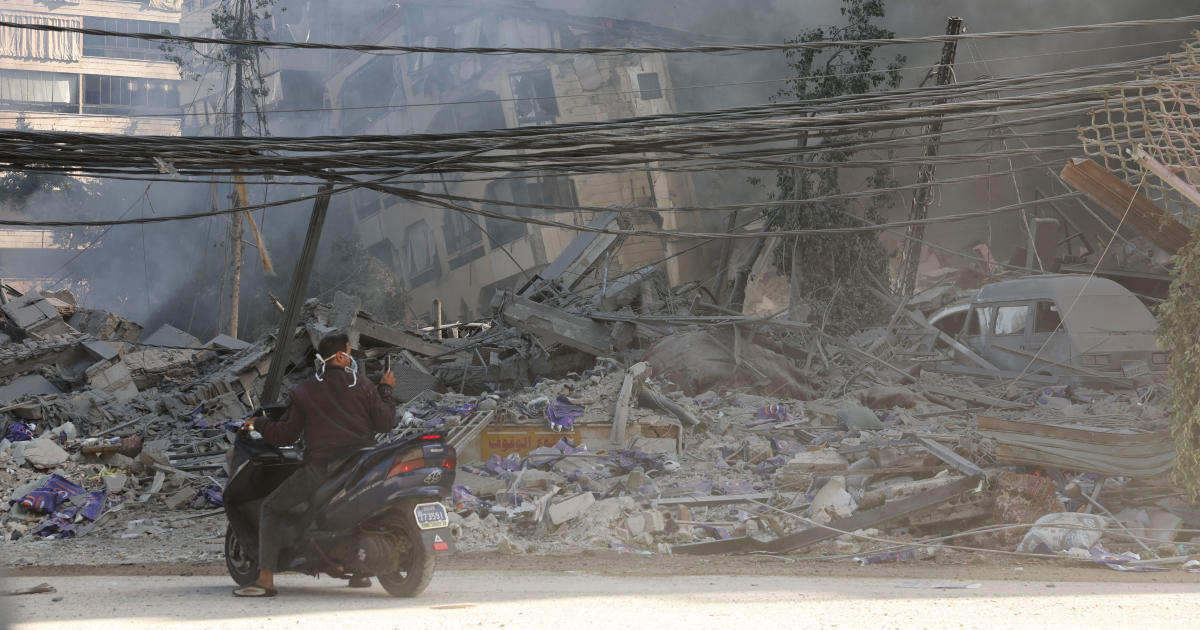The ongoing conflict between Israel and various militant groups in Lebanon and Gaza has escalated dramatically, resulting in a humanitarian crisis and raising concerns about a wider regional war. Israel’s intensified air and ground operations, including strikes on civilian areas in Beirut and southern Lebanon, have caused widespread casualties and displacement. The international community is scrambling to respond to the escalating violence, with several countries initiating evacuation plans for their citizens. The situation remains volatile and unpredictable, underscoring the urgency of finding a peaceful resolution to this devastating conflict.
Civilian Casualties and Humanitarian Crisis in Lebanon
The Israeli airstrikes in Lebanon, particularly those targeting Beirut, have resulted in a significant number of civilian casualties. The targeting of a building housing the Health Society, a civilian first responder group affiliated with Hezbollah, exemplifies the devastating impact on non-combatants. Reports indicate numerous deaths and injuries among health workers and civilians. Furthermore, the alleged use of white phosphorus, a weapon prohibited near civilian populations, raises serious human rights concerns and fuels accusations of war crimes. The Lebanese Ministry of Health reports staggering numbers of casualties and displaced people, highlighting the severity of the humanitarian crisis unfolding.
Escalating Casualties
The death toll from Israeli airstrikes continues to climb. Reports of widespread damage and destruction across various areas point towards the increasing intensity of the conflict and the widespread suffering it brings. The casualty numbers emphasize the dire situation that innocent civilians are facing. The destruction of homes and vital infrastructure further compounds the challenges faced by Lebanese civilians, forcing mass displacement and highlighting the dire need for humanitarian assistance.
Humanitarian Aid and Evacuation Efforts
The scale of the crisis has triggered international responses. Several countries are chartering flights and offering assistance in evacuating their citizens from Lebanon. The surge in evacuation efforts demonstrates the severity of the security situation. International organizations and humanitarian groups are working tirelessly to provide aid, but the ongoing conflict significantly impedes access to those in need. The difficulties in reaching those impacted hinder effective response and assistance to people who desperately need it.
Israel’s Military Operations and the Hezbollah Conflict
Israel’s military response to the Hamas attacks has expanded to encompass significant operations in southern Lebanon, primarily targeting Hezbollah. This expansion demonstrates the rising tensions and growing implications of the regional conflict. These operations have intensified in recent weeks, following Israeli accusations of Hezbollah being deeply involved in Hamas attacks and following the assassination of a Hezbollah leader in Beirut. Israel’s ground incursions, alongside intense airstrikes, are intended to neutralize Hezbollah’s capabilities and prevent further attacks against Israel.
The Ground Offensive and Military Objectives
The Israeli Defense Forces (IDF) have launched ground incursions into southern Lebanon, indicating a significant escalation of the conflict and signaling a move toward a broader military confrontation beyond air attacks. These ground operations involve extensive fighting and have already led to casualties within both forces. These confrontations also highlight the heightened complexity of the situation due to Hezbollah’s advanced weaponry and established infrastructure in the region.
Hezbollah’s Response and the Regional Implications
Hezbollah’s response has been active and coordinated. They have launched rockets into northern Israel, causing injuries and prompting retaliatory attacks. This back and forth highlights the increasing intensity of the conflict with potential repercussions throughout the region. The exchange of fire risks the possibility of further escalation with further intervention by other regional and global powers, furthering complicating the already volatile environment. The potential involvement of other players adds further depth and potential for future escalation.
International Responses and Diplomatic Efforts
The escalating conflict has prompted urgent calls for international intervention and diplomatic efforts to de-escalate tensions and facilitate a ceasefire. The United Nations Security Council convened an emergency meeting to address the situation, underlining the international community’s growing concern. Various countries have expressed condemnation for the violence and are calling for an immediate end to hostilities and to focus on diplomatic resolution to bring about a lasting peace. However, significant divisions between the global power blocs hinder attempts to forge a collective approach and resolution.
UN Involvement and International Condemnations
The United Nations Security Council’s emergency meeting demonstrates the international community’s concern over the escalating violence. While various nations condemn the violence and express a desire for peace, concrete solutions and consensus continue to remain elusive amidst considerable disagreements. The conflicting geopolitical interests involved challenge hopes for swift or significant intervention and increase uncertainty about reaching a solution.
Efforts to achieve ceasefire and future steps
While peace efforts continue, the situation is fraught with complexities given the historical animosities and political objectives fueling the conflict. The current tensions risk jeopardizing the likelihood of successful diplomatic negotiation, further stressing the importance of concerted global actions in ending the violence.
Take Away Points:
- The conflict in Lebanon and Gaza has resulted in a significant humanitarian crisis, causing massive civilian casualties and displacement.
- Israel’s military operations in Lebanon are aimed at neutralizing Hezbollah, leading to a further escalation of the conflict.
- International efforts to de-escalate the situation are hampered by the complex geopolitical dynamics at play.
- The immediate future remains uncertain, with the potential for further escalation and the urgency for effective diplomatic engagement paramount.




